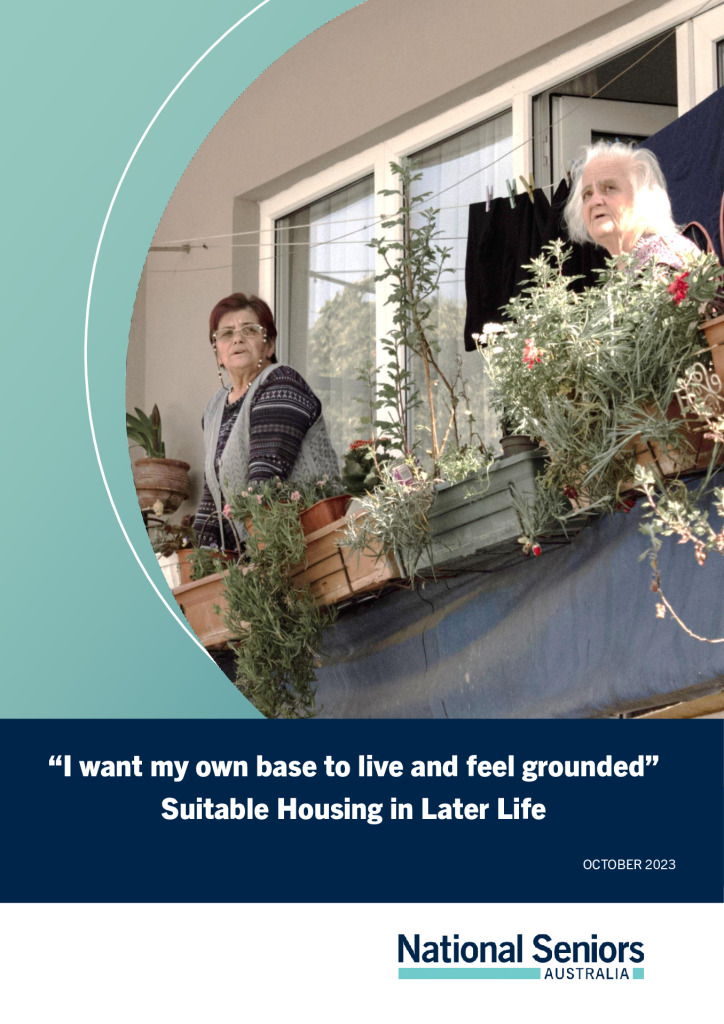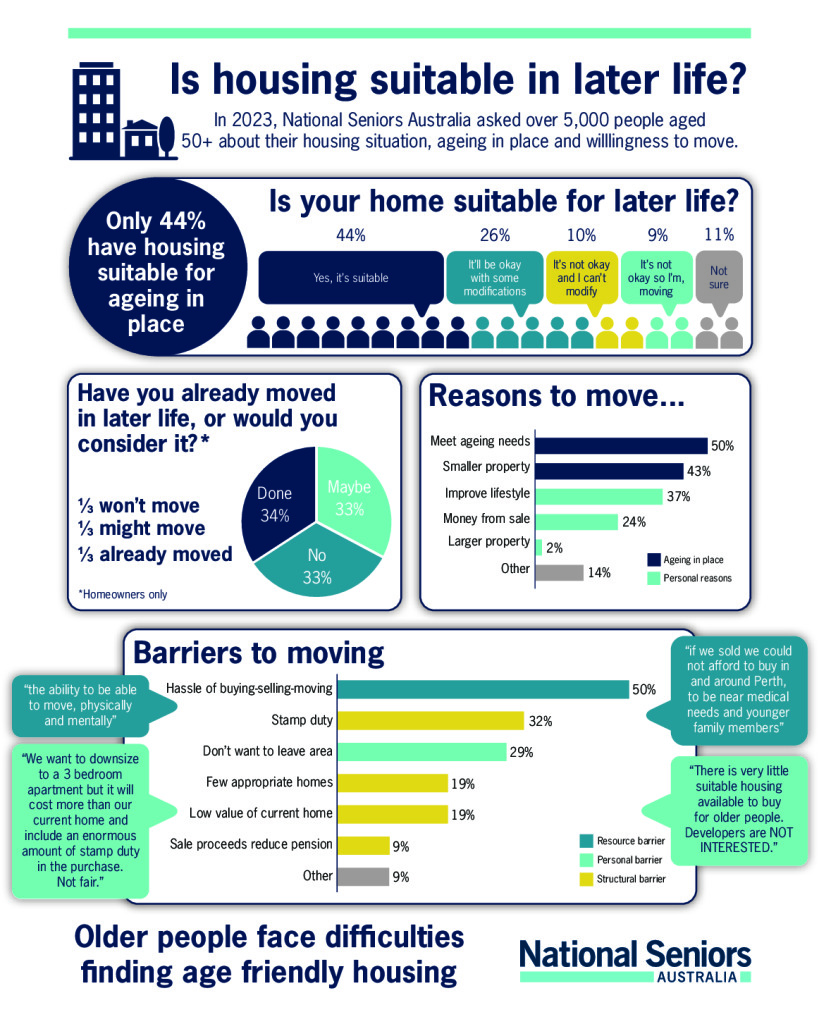National Seniors Australia survey results from people aged 50 and over about their housing situation.
National Seniors Australia survey results from people aged 50 and over about their housing situation.
In February 2023, National Seniors Australia surveyed more than 5300 people aged 50 and over about their housing situation.
The survey asked respondents about the suitability of their current home for ageing in place, their expectations for being able to afford suitable housing in the near - and long -term future, and if there was anything else they would like to change about their housing situation. Homeowners and those paying off mortgages were also asked about their motives for moving later in life and any barriers to doing so.
One third of respondents were at least slightly concerned about housing affordability in the 12 months following the survey, and two thirds were at least slightly concerned about being able to afford housing during the remainder of their life. The factors most strongly associated with higher levels of concern were renting, paying a mortgage and/or having low savings.
Issues people discussed when writing about housing affordability included home purchase prices; retirement village and aged care fees; high rents; high interest rates; high ongoing costs associated with housing; and incomes or savings levels being too low to keep up with any or all of these.
When asked what they would like to change about their current homes, hundreds of people wrote of their desire for smaller, more manageable homes and yards or help to manage them as they aged. Accessibility modifications were another priority for many.
The scarce availability of age-appropriate, affordable housing, and general housing stock shortages, were raised as an issue too. Housing security remains a problem for renters, with many wanting easier and more affordable pathways to buy, or more secure, affordable, long -term rental options.
Seventy percent of respondents believed their home would be suitable for them in later life (though 26% would need modifications), while 19% said their home would not be suitable and 11% were unsure. Higher proportions of younger age groups and people living remotely believed their home would not be suitable. Obstacles to suitability mentioned in written comments included home and yard size, accessibility issues including stairs, lack of available home assistance, the cost of modifications, and housing insecurity.
Around a third of homeowners would consider moving later in their lives, a third had already done so and another third did not wish to move again. Smaller homes, including townhouses, semi - detached houses and especially units, were disproportionately dominated by people who had already moved.
Common motivations for moving were to meet ageing needs and to have a smaller home. Common barriers that respondents identified included the hassle of buying, selling and moving, the expense of stamp duty, and people's reluctance to leave the area they currently lived in.
The results lend support to calls for systemic change with respect to housing availability, diversity and affordability.

Register or login to get access

Register or login to get access
National Seniors is a not-for-profit membership and advocacy organisation that gives older Australians – working and retired – a strong national voice. We tackle issues such as age discrimination, mature age employment, the Age Pension, social inclusion, cost of living concerns and more.
Already have an account? Login here for full content access.
Don’t have an account? Register today for full content access.